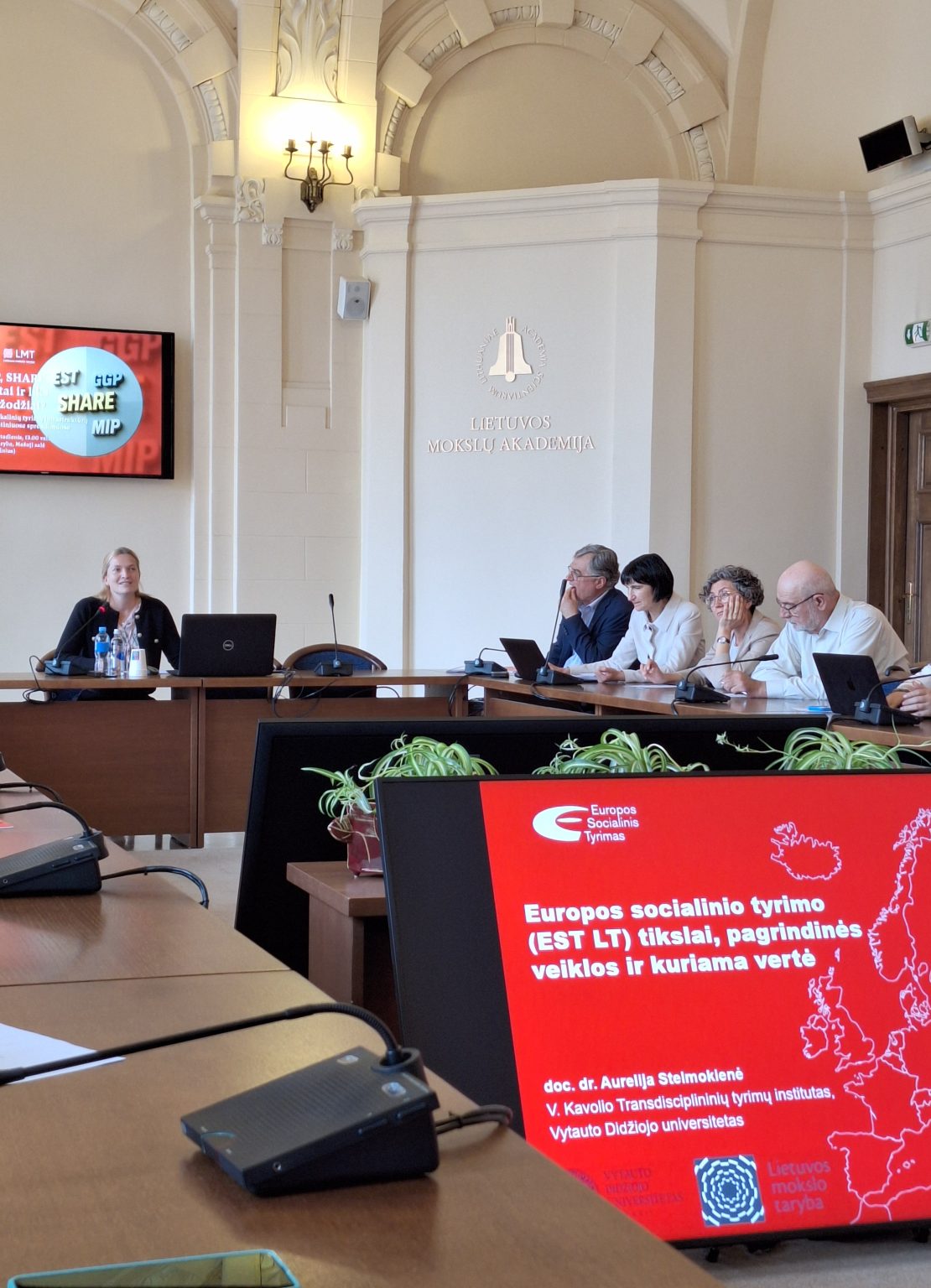On June 5, 2025, the research team of the Vytautas Kavolis Transdisciplinary Research Institute of Vytautas Magnus University, which is implementing the European Social Survey (EST), and the Research Council of Lithuania invited to the event entitled “EST, GGP, SHARE, MIP – Will they remain just buzzwords? Making national research infrastructures operational in policy decisions” (Lithuanian: „EST, GGP, SHARE, MIP – ar tai ir liks tik burtažodžiai? Nacionalinių mokslinių tyrimų infrastruktūrų įveiklinimas politiniuose sprendimuose“). Prof. Dr. Gintaras Valinčius, President of the Research Council of Lithuania, welcomed all participants and wished them a meaningful discussion.
The first part of the event presented the social science research infrastructures included in the Lithuanian Research Infrastructures Roadmap: the European Social Survey (ESS), the Generations and Gender Programme (GGP) and the European Survey on Health, Ageing and Retirement (SHARE). Presentations by Assoc. Prof. Dr. Aurelija Stelmokienė (VMU), Prof. Dr. Antanas Kairis (VU) and Prof. Dr. Aušra Maslauskaitė (VMU, LSMC) highlighted the main objectives of these infrastructures, the variety of data they collect and the value they generate.
The second part of the event, which focused on enhancing the culture of science-based decision-making within the public sector, was attended by representatives from social science research infrastructures, including Assoc. Prof. Dr. Ligita Šarkutė (EST-LT), Prof. Dr. Antanas Kairys (SHARE Lietuva), Prof. Dr. Aušra Maslauskaitė (GGP-LT), and members of the Science and Innovation Advisors Network: Lukas Stakėla (MIP VK) and Dr Simona Pūkienė (MIP KAM). Also in attendance was the LMT Vice-Chair Dr. Vaiva Priudokienė. Dr. Vita Juknevičienė (MIP MoI) chaired and moderated the event.
The event attracted attention from not only the academic community, but also the Seimas of the Republic of Lithuania, various ministries, and representatives of the State Progress Council. This reflects the growing interest in science-based solutions in politics. It is hoped that such events will contribute to the more coherent integration of scientific evidence into the formulation of public policy and decision-making processes.


